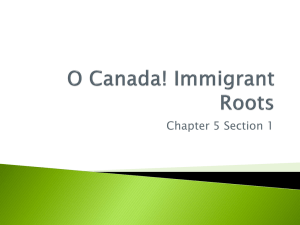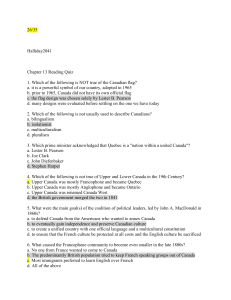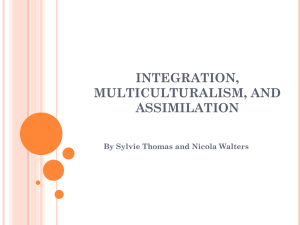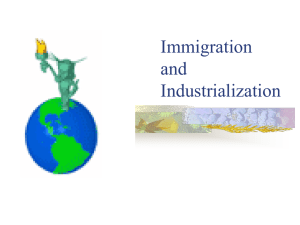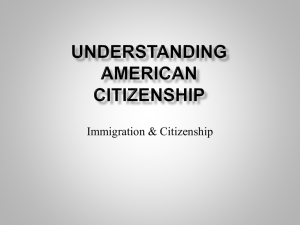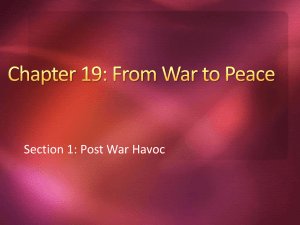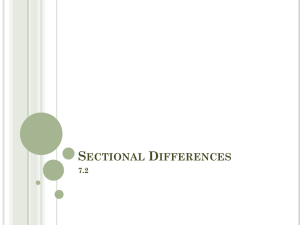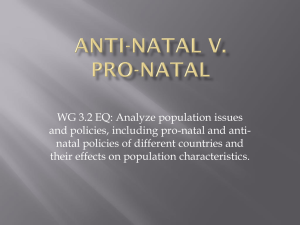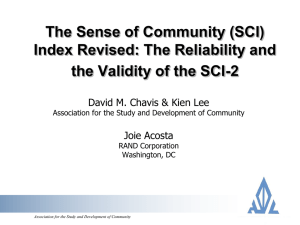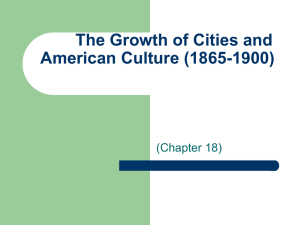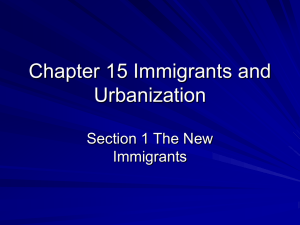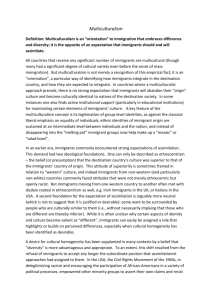The Study of Maghreb Immigrants in Contemporary France: Social
advertisement
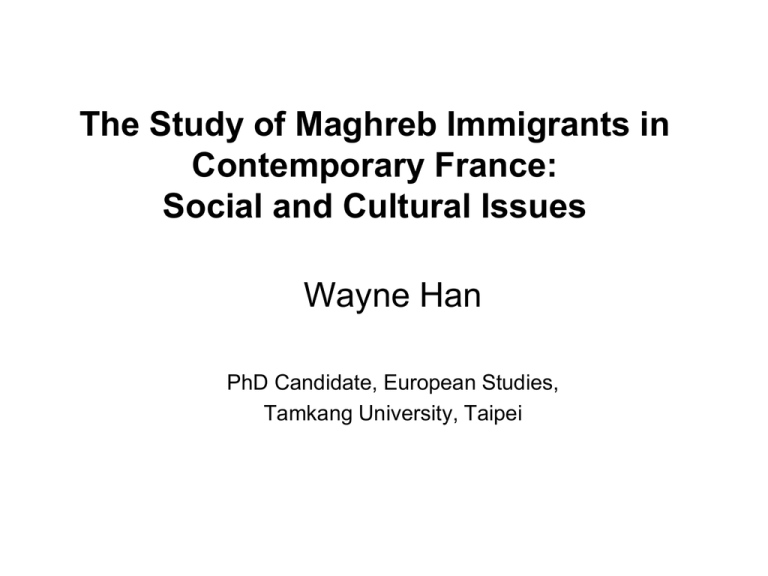
The Study of Maghreb Immigrants in Contemporary France: Social and Cultural Issues Wayne Han PhD Candidate, European Studies, Tamkang University, Taipei Outline • I. Maghreb Immigrants in France 1. historical background 2. Maghreb immigrants • II. National Identity and French Republicanism 1. National identity 2. French Republicanism • III. The Policy of Multiculturalism and its Malfunctioning 1. Multiculturalism and its limit 2.The Incompatibility between Muslim Immigrants faith and laïcité IV. Conclusion I. Maghreb Immigrants in France 1. Historical background: a. The period from 1945 to 1975 called “Glorious Thirty (Trente Glorieuse,)” b. The number of immigrants goes from 1,744,000 in 1945 to 3,442,000 in 1975 c. July of 1974 saw the official suspension on immigrations of non-European origin. d. The suspension was abolished by the Conseil d’Etat in 1978. I. Maghreb Immigrants in France • 2. Maghreb immigrants a. The 1970s began one of the darkest periods in the postcolonial history of anti-Algerian violence in France. b. The bombing of the Algerian Consulate in Marseilles in December of 1973 resulted in 4 deaths. c. Muslim immigrants, including their children, are estimated to be roughly 4.2 million. II. National Identity and French Republicanism 1. National identity a. “Identity is a definition, and interpretation of the self.” b. It is the nation on which identity is based. c. The nation-state is the political unity that people generally identify themselves with. II. National Identity and French Republicanism 2. French Republicanism a. The particularity of French national identity is its republicanism. b. The laïcité (secularism) promotes “the idea of secular state, neutral among all religions.” the shift from the religious to the political. c. “It is a tradition that stresses the virtues of civil equality.” III. The Policy of Multiculturalism and its Malfunctioning 1. Multiculturalism and its limit a. Multiculturalism, in theory, is a way in which various minority groups can live together within a national border while their identity and culture are allowed and tolerated. b. “Multiculturalism does not have the vocation to assure the handling of religious reality.” c. It is incapable of excluding religion from its practices. III. The Policy of Multiculturalism and its Malfunctioning 2. The Incompatibility between Muslim Immigrants faith and laïcité a. In Islam religion and politics are hardly made separate. b. Street praying and wearing scarves in public schools violates the principle of secularism. c. “How can we defend the republican model whose fate is inescapably tied to the French nation and to Catholicism?” IV.Conclusion a. b. “Under [the Republican] paradigm, immigrants become part of the French nation as individuals, not as groups having a common ethnicity or religion.” Nation-state as base for identity faces new economic reality of globalized governance.
